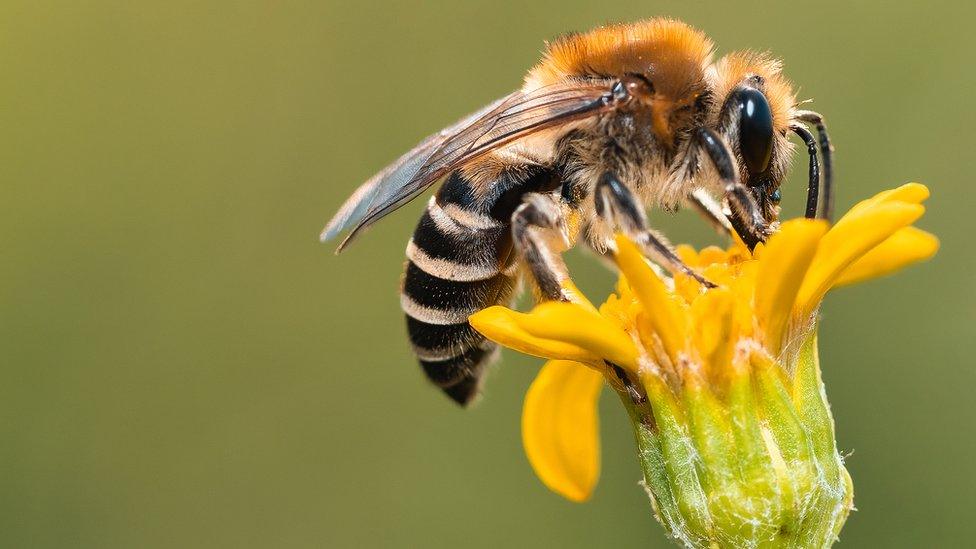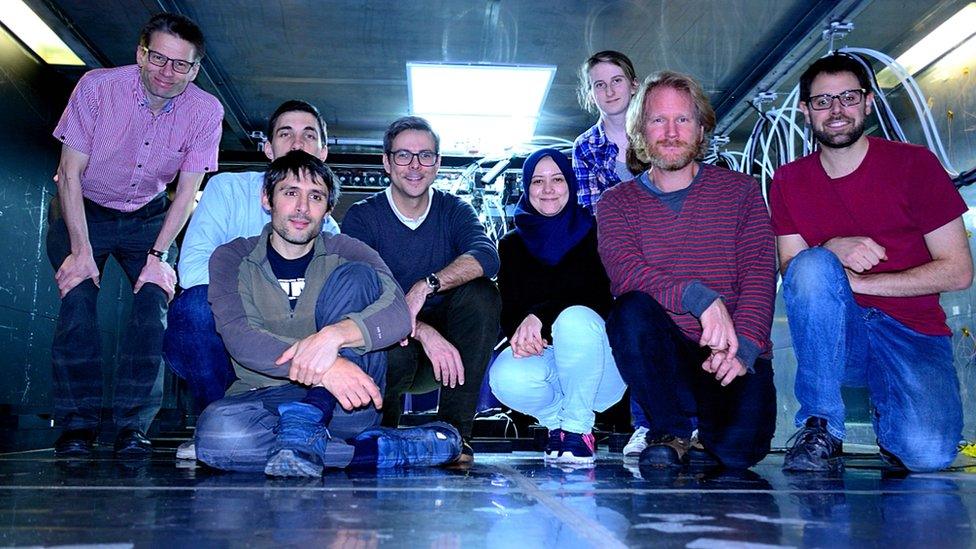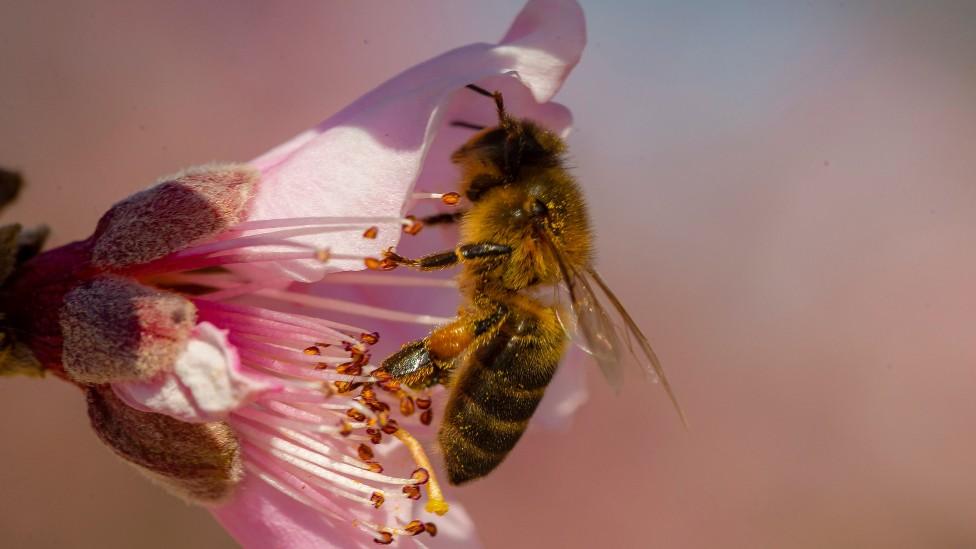Car pollution stops bees finding flowers - researchers
- Published

University of Birmingham researchers say the discovery has implications for our food security
Pollution from cars is destroying the ability of bees to find flowers, according to research done by the University of Birmingham.
Higher levels of ozone reduce the distance a flowers scent spreads and in turn attracts fewer bees.
A studies in the field found the number of visits being made to flowers by bees fell by half because of pollution.
Prof Christian Pfrang said the team had been surprised at just how big the impact of pollution had been.
Researchers conducted an experiment in a huge wind tunnel to try and understand what was going on.
The team comprising the UK Centre for Ecology & Hydrology (UKCEH) and the Universities of Birmingham, Reading, Surrey and Southern Queensland, simulated the scent given off by a flower and measured how far it travelled in various levels of pollution.
As the ozone levels increase, the spread of the plume collapses as the ozone interferes with the chemistry of the scent from the flower.

The team were shocked to see how only half the number of bees could find flowers when there were higher levels of ozone
Prof Pfrang said: "Our study provides robust evidence that the changes due to ground-level ozone on floral scent cause pollinators to struggle to carry out their crucial role in the natural environment, also with implications for food security.
"The straightforward solution is to reduce pollution, to reduce levels of air pollutant such as ozone and diesel exhaust."
Bees use so-called volatile organic compounds (VOCs) to identify plants. They are designed to lead pollinators to the flower without filling the air completely and overwhelming them.
However, this chemistry is vulnerable to disruption from pollution, much more than what was originally thought.

Follow BBC West Midlands on Facebook, external, Twitter, external and Instagram, external. Send your story ideas to: newsonline.westmidlands@bbc.co.uk, external
Related topics
- Published17 April 2023
